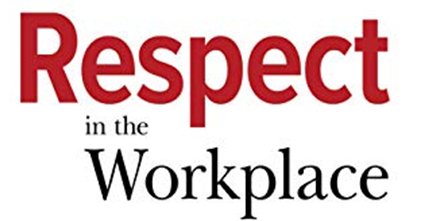The Value of Respect in the Workplace

Respect is one of the core values in the workplace. We become so familiar with words that we use every day, that we believe that we know implicitly what they mean. This list may serve as a good reminder what respect in the workplace means.
- Treat people with courtesy, politeness, and kindness.
- Encourage coworkers to express themselves and share their opinions and ideas.
- Listen to what others have to say before expressing your viewpoint. Ask to understand. Don’t speak over, butt in, or cut off another person.
- Use people’s ideas to change or improve the workplace. Let employees know you used their idea, or, better yet, empower the person with the idea to implement their idea (if they are capable of doing so).
- Don’t insult people, name call, disparage or put down people.
- Do not nit-pick, constantly criticize over little things, belittle, judge, demean or patronize. A series of seemingly trivial actions, added up over time, constitutes bullying.
- Don’t discriminate. Treat people equally no matter their personality, race, religion, gender, size, age, values or country of origin.
- Implement policies and procedures consistently so people feel that they are treated fairly and equally. Treating people differently can constitute harassment or a hostile work environment.
- While not every person can participate in every activity, do not marginalize, exclude or leave any one person out. Provide an equal opportunity for employees to participate in committees, task forces, or continuous improvement teams. Solicit and involve volunteers in many activities.
- Praise much more frequently than you criticize. Encourage praise and recognition from employee to employee as well as from the supervisor.
- The golden rule does apply at work: “Implement the platinum rule: treat others as they wish to be treated.”
- Create an atmosphere of gratitude, as it fills the heart and mind with positive energy and feeling of contentment.
- Be a good citizenship and contribute to society. It can take many forms. For example, volunteer and active in your community, be honest and trustworthy, respect the rights of others, be compassionate, take responsibility for your actions.
- Establishing norms or expectations for behavior in your organization a powerful way to bring your values to life and nurture a respectful work culture. For example, leave your meeting space looking better than you found it, when you see litter, pick it up, keep your workspace organized and free from clutter.
- Be respectful of others’ time. Whenever possible, be on time – don’t make others wait for you. If you say you will call someone back by a certain day or time, make every effort to do so. If you need to talk with someone, ask if it is a good time for him/her first. Be sensitive to others’ schedules and time limits.
- Respectful communication is assertive communication that include good listening, direct and open feedback, regular praise, paying attention to non-verbal language and avoiding gossip.
- Bring positivity to work while leaving behind your sour face, negative disposition, gloom and doom thinking, constant complaining, sullenness, avoidance, pouting, hysterics, stubborn resistance to change. Bring instead a positive attitude and optimistic outlook, while being open to take on new challenges.





